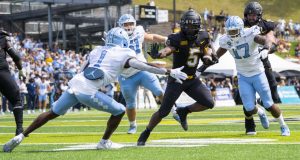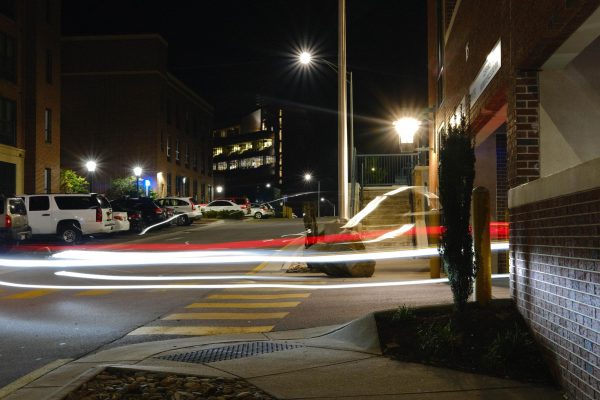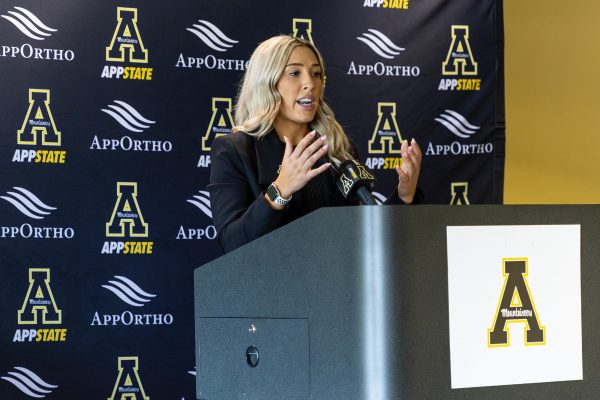Julian Bond spoke at Appalachian State University’s Schaefer Center for the Performing Arts on Jan. 23 as a part of the 31st annual Martin Luther King, Jr. commemoration.
Bond is the co-founder of the Student Nonviolent Coordinating Committee, a long-time Georgia congressman, a published author and distinguished scholar.
He spoke to honor and reflect on the lives of the men and women who fought and sacrificed for the liberties minorities have, for over 300 years, been systematically denied.
Bond shared anecdotes from his own past as an activist dedicated to the struggle for civil rights, economic justice and peace. He also discussed and illuminated the racial circumstances of modern day America.
Bond’s speech traveled through the history of America, “from the [Ku Klux Klan] to Hurricane Katrina…[and] Emmett Till to Trayvon Martin,” to depict the parallels between the disparities suffered by minorities decades ago, and those they endure today.
“The past is never dead. It’s not even past,” Bond said, quoting American writer and Nobel Prize laureate William Faulkner.
The only difference between today and the 1960s, Bond said, is that instead of politicians struggling together for civil rights, they are struggling to be civil. Instead of a man’s value allotting him power, he is valued for his power, and instead of heading a war on poverty, there is an undeclared war on the poor.
“Racism is alive and well,” Bond said. “[Black- Americans have endured] 246 years in slavery, 100 years of segregation, and de facto and de jure systemic oppression, and 50 years of half-hearted attempts of equality [riddled with modern institutionalized racism.]”
Like many black-Americans, Bond can trace his ancestry back to slavery.
“The civil rights movement was a movement for the people, and by the people with the goal of reestablishing the fractured foundations of America, and addressing the long standing history of white supremacy within the country,” Bond said.
As thousands of advocates and activists came before Dr. Martin Luther King Jr., Bond said he believes that thousands more will follow in the footsteps of those that came before their time. He encouraged the audience to challenge their fears as activists such as Dorothy Counts, Hartman Turnbow and Fanny Lou Hamer had done and maintain an “abiding faith in America.”
Bond was introduced by Chancellor Sheri N. Everts and senior Black Student Association president Aisha Cotton.
“Julian Bond is a living legend, as recognized by the library of Congress,” Cotton said.
Cotton read Bond’s poem I, Too, Sing America, which is a juxtaposition to Walt Whitman’s I Hear America Singing. The poem offers a summary of Bond’s work, and overall theme, beginning with racial oppression and looking, hopefully, toward a brighter future.
STORY: Naula Ndugga, Intern News Reporter












